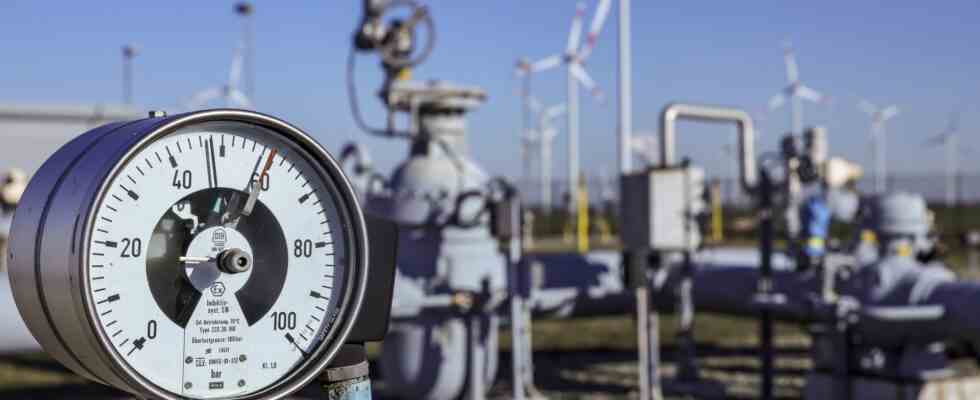Status: 06/28/2022 1:38 p.m
According to leading economic researchers, the risk of a gap in the gas supply has fallen significantly since April – thanks to more full storage facilities. However, an immediate stop to the supply of Russian gas would have massive consequences.
According to estimates by several economic research institutes, the probability of a gas supply gap has fallen significantly over the past three months. This is the result of their simulations of the further development of the supply situation. However, the economy in Germany remains threatened by a lack of gas supply, the researchers explained.
Even if there were no deliveries of Russian gas, the situation in Germany would be less critical in the coming months than it was in April. The main reason for the relative relaxation lies in the fact that the gas storage facilities in Germany are now about 60 percent full, in April it was only 30 percent.
No shortage of throttled Russian supplies
The researchers also see little danger in scenarios in which Russian deliveries, which are currently reduced to 40 percent, are continued. “Then, even in the case of unfavorable constellations, there is no threat of gas bottlenecks for the industry,” according to the institutes in their analysis.
At the end of 2023, the gas storage facilities would then only be 14.1 percent full, after 60.6 percent in December 2022. “This would mean that the German economy would be significantly less supplied with gas in 2024,” according to the institutes. “However, other sources of supply that have not yet been taken into account in the simulation should then come within reach.”
If deliveries are stopped, there is a risk of growth losses
However, the situation is different in the case of an immediate delivery stop. Then the supply of the industry would be endangered. If this were to happen, there would be a 20 percent probability of a gas shortfall of at least 23.8 terawatt hours (TWh) in the coming year – “in the very unlikely worst case, almost 160 TWh would be missing”.
Loss of production in the gas-intensive industries and their immediate customers would lead to a loss of added value of around 46 billion euros, in the worst case even 283 billion euros. This corresponds to up to a tenth of the German economic output of the past year.
Pass costs on to consumers
The economic researchers from the IfW, ifo, RWI and IWH call on politicians to enable an “adaptation to the energy shock” in business and society. The increased procurement costs for energy sources should be passed on to consumers in a timely manner, “because then energy consumption will drop and more favorable constellations of gas availability will become more likely.” Instead of state premiums for saving energy, needy households should be supported through targeted transfers.

